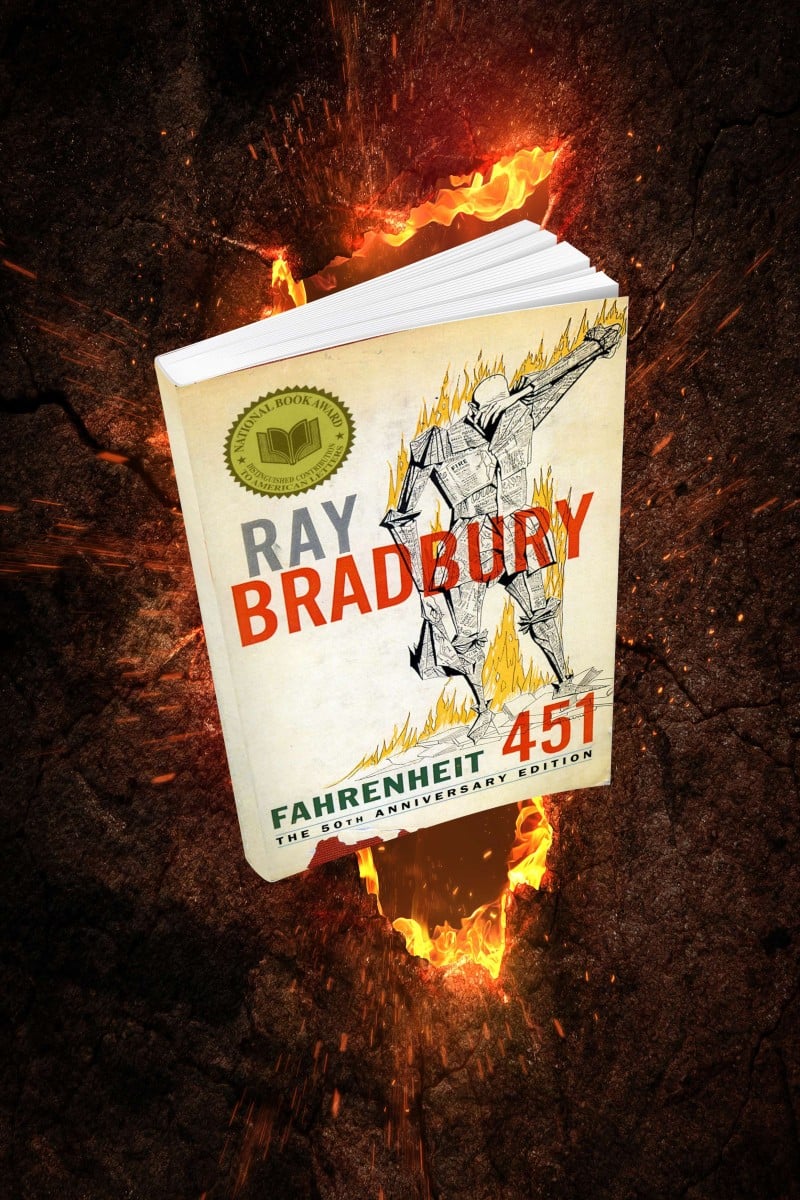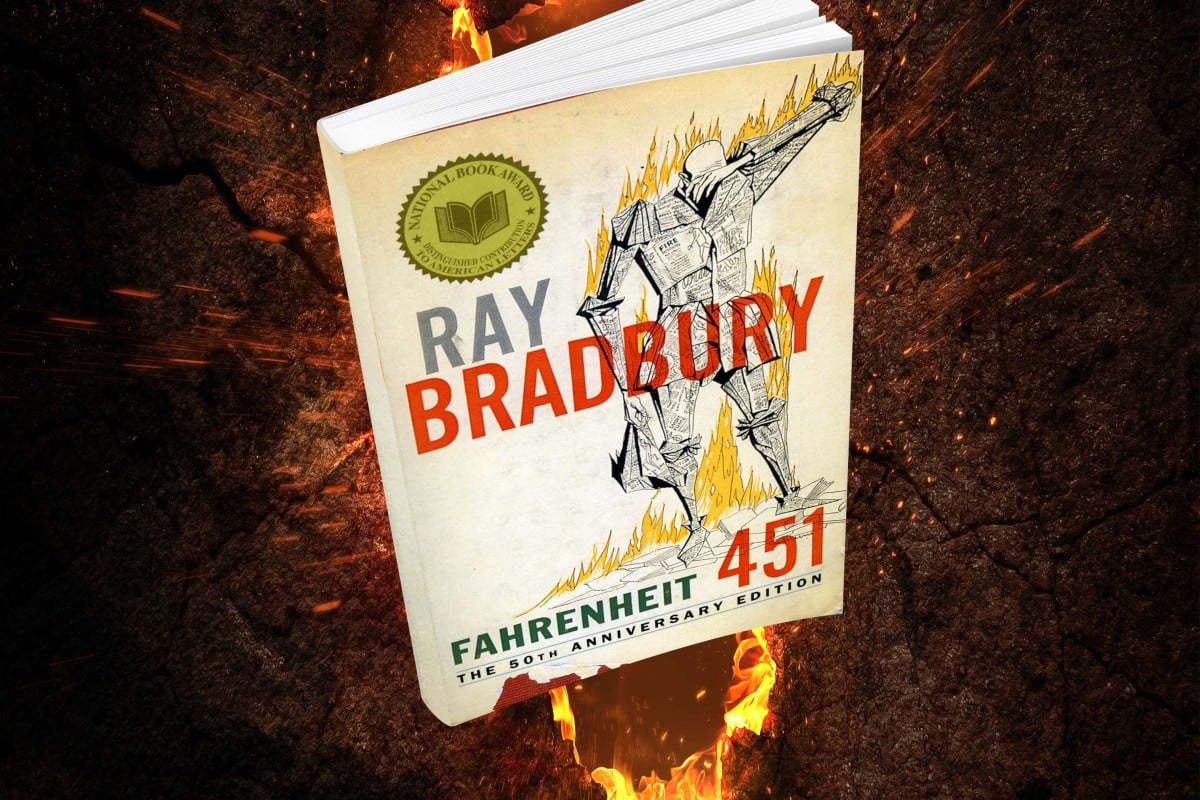
Golden 10: Fahrenheit 451 is a chilling look at a society where books are burned by firemen
Young Post has come up with a list of great books you should read before you head off to university. This week’s novel is set in a society where books are outlawed and ‘firemen’ burn any that are found

What’s it about?
Fahrenheit 451 is a dystopian novel set in the future where books are banned and “firemen” burn any that are found. The main character is a man named Guy Montag, who is a fireman. His job is to burn the belongings of those who read banned books. One day on the way home from work, he meets his new neighbour, a young girl named Clarisse. Her liberal ideas make him stop and think about his life and his own happiness.
A few days later, he and other firemen are busy ransacking the house of an old woman that is filled with books. Before they burn the whole house, he steals a book without anyone noticing.
His boss senses that Guy has a book, and says that all firemen can take one, to satisfy their curiosity, and it was alright as long as it was burned within 24 hours.
But Guy can’t quite bring himself to burn the book, and begins to question things about his life. He finds a former English professor called Faber, who is reluctant to help him in case it’s a trap, but eventually gives Guy an earpiece so he can communicate with him.
Guy returns home and tells his wife about the books he has smuggled. She is horrified. He tries to connect with her by turning the TV off and talking to her, but he realises they have nothing in common, and in fact, hardly know each other.
What’s so great about it?
The novel was written by Ray Bradbury in 1953, long before the age of kindles, smartphones or the internet. Yet, Fahrenheit 451 is chillingly insightful. When Bradbury was a teenager, there were several memorable book-burning incidents. These included a campaign in the 1930s in Nazi Germany to ceremonially burn books that offered any views opposed to Nazism. And then there was Joseph Stalin’s “Great Purge” in the Soviet Union. It was a campaign of political repression from 1936 to 1938, where anyone who questioned the government – and notably writers and poets – was arrested and often executed.
Bradbury comments on how, throughout the years, people demanded faster media. Books were shortened and rejected in favour of things that could be read more quickly. Books were also shunned as the content was thought to be outdated and controversial. Some governments saw this as an opportunity and began burning all books in the name of public happiness.
Bradbury’s Fahrenheit 451 was well ahead of his time, with prominent themes – such as self-censorship, the vulnerability of books and the dwindling appreciation for literature – that are still as relevant, if not more so, today, than they were at the time of publication.
Why should you read it before you go to university?
While the idea of physically burning books might seem unthinkable in modern society, it is not too distant from the concept of self-censorship, which is a familiar topic these days, particularly in Hong Kong.
Since the recent case of the missing booksellers, some people are choosing not to publish controversial material fearing negative consequences. This self-censorship extends to essays, articles and even social media posts, so it’s a concept that is very relevant for those about to enter university and engage in politically sensitive discussions.
If you liked Fahrenheit 451, you might also want to try ...
High-Rise by J. G. Ballard
The Lathe of Heaven by Ursula Le Guin
The Time Machine by H. G. Wells